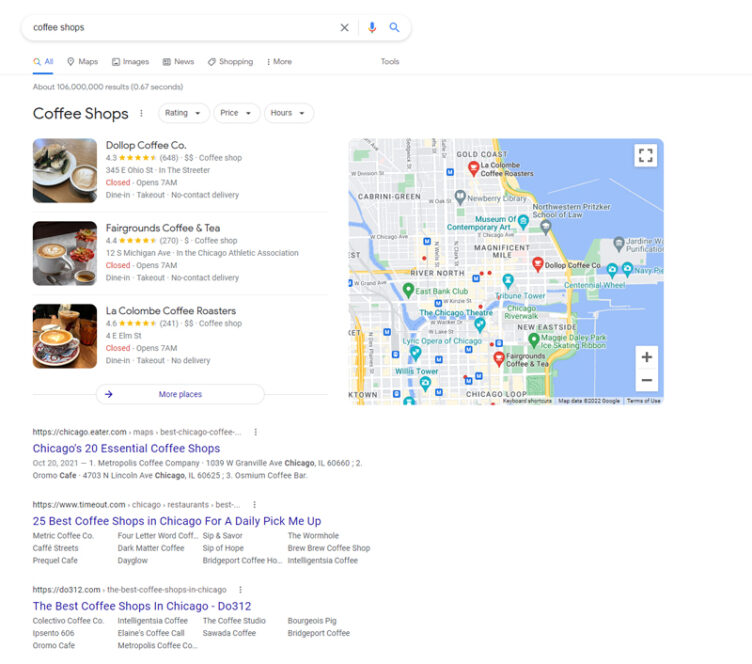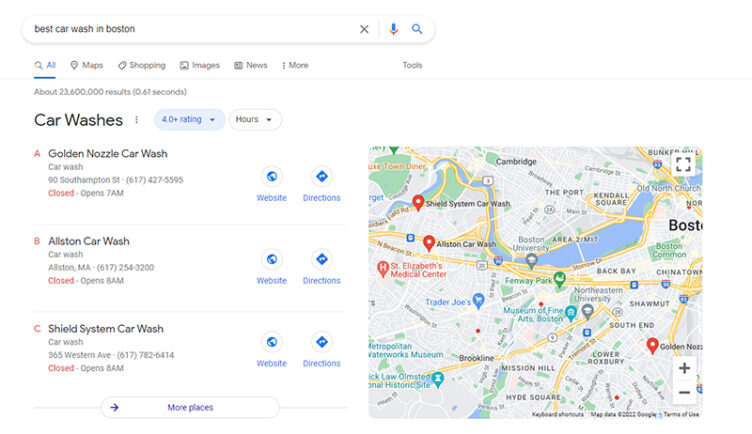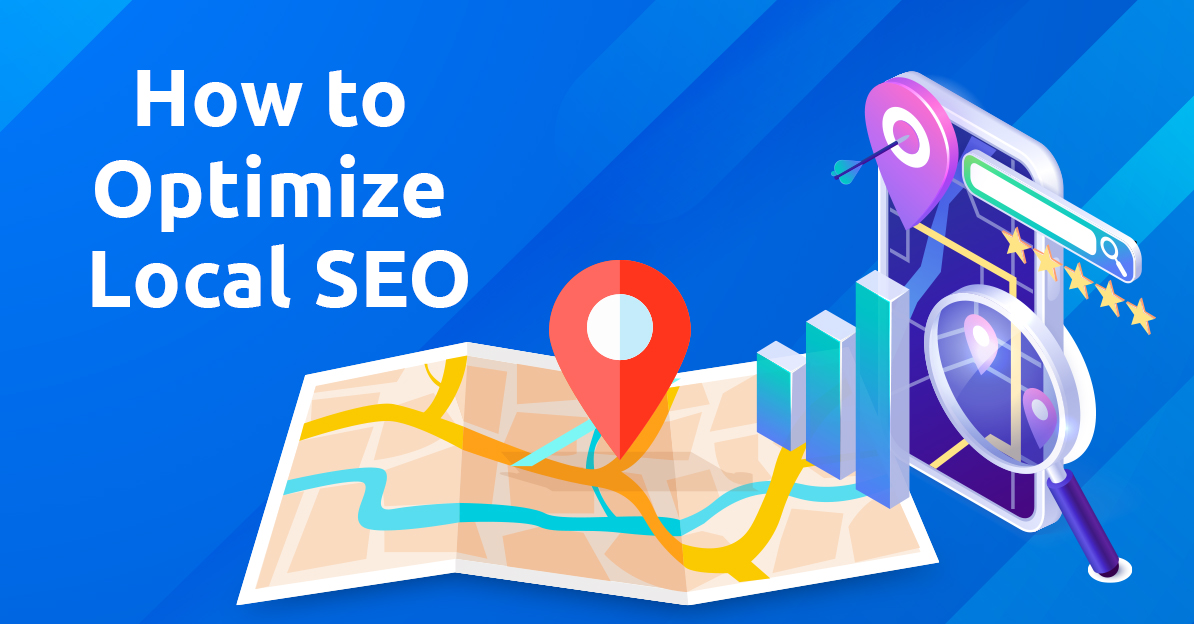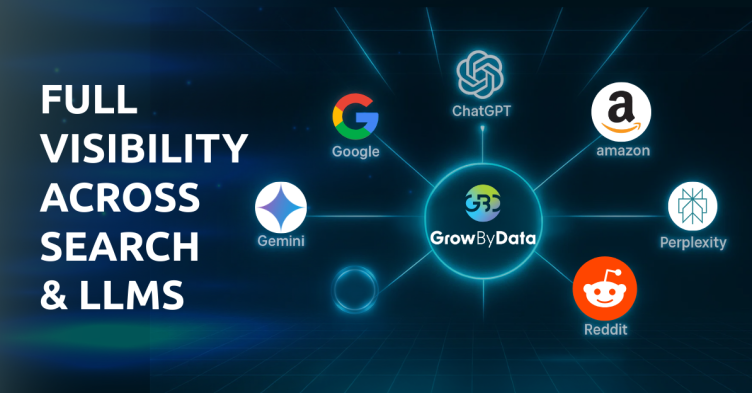People use search engines like Google and Bing to find any businesses, products, services, and additional information on topics of interest. Businesses use SEO (Search Engine Optimization) to improve their website rank in relevant search results and ultimately get their website on the top of search results. Focusing on local SEO can be a cheaper and more effective option for local businesses to boost traffic, sales, and rank on search engines through local search results. Investing in local SEO could be the key to staying relevant and growing your business since 46% of all searches on Google are seeking local information and an average of 80% of the local searches that arrive on your website will convert.
In this article, we talk about how you can optimize for local SEO to capture valuable traffic and customers, and mention essential benefits of local SEO for a business.
Table of Contents: Show
Local SEO is an integral part of SEO strategy that emphasizes making your website more visible to local people in the area when they tend to do a Google search. Local Search strategy helps your business reach targeted audiences in a specific area when they search for related terms or your business.
This improves your visibility on search engines like Google and Bing. Any business that has a physical location or is looking to attract an audience in their geographical region will benefit from local SEO.
Optimizing your local search campaigns helps your business stand out, drive more traffic through searchers browsing for products or services provided by your business, boost your local search rankings, and ultimately improve conversion.
Local search is more specific to a certain location compared to general Google searches. Businesses with a physical location in certain geographical areas already have a certain edge against their competitors who are only competing through an online platform. So, businesses need to leverage local SEO and ensure they are optimized and visible in locational keywords.
Why a Local SEO Strategy Is Important for Google Rankings
Local SEO is imperative to all businesses but especially those with physical locations because of it:
- Provides a better chance to enhance your online visibility in local areas.
- Ensures an increase in traffic to your location.
- Boosts conversion rate by captivating more targeted audiences.
- Helps build trust by improving reliability.
For example, users could search for “coffee shops” to find the best coffee shop nearby in their city. Businesses running coffee shops around certain localities should show up and be visible at the top of local results for locational search in target keywords in both organic results and the map section.

Local Search Optimization makes a massive impact on your brand and adds immense value to your business by building up your local search engine presence. You should use the power of local SEO to bring in more traffic to your website and to make a strong presence of your business in your local area.
What are the benefits of local SEO in 2025
Here are 5 benefits of local SEO:
- Less Competition
- Improve Local Visibility Online
- Gain Competitive Edge
- Reduce Advertising Costs
- Get Listed in Google’s 3 Pack
Let’s dive deeper into the benefits of Local Search Optimization.
1. Less competition in Google against non local companies
Being a local business gives you a certain edge against non-local businesses competing with you online. Therefore, if you optimize for local intent keywords you already have the advantage due to the Geographical intent logic of search engines. Search Engines like Google strive to provide the most convenient search results to a customer’s query. If you have optimized for local search then, the chance of your business winning the click is higher since there is a better chance of you solving the user’s problem than businesses that are farther away from the customer.
2. Improve Local Visibility on Google Organic Results
Local SEO helps businesses gain more visibility as the right people interested in your products near your location find you at the right time. When your business is more visible, you will be able to gain more visibility in local search results across Google products, like Maps and Search.
3. Higher Rankings on the SERP
The first five organic results of Google get 68% of the clicks. Optimizing them helps you to rank higher on SERP (Search Engine Result Pages) results which allow people to choose your business over your competitors. Local Search Optimization enables you to bypass competition (online stores without a physical location) and gain a long-term competitive edge that drives you ahead of the competition.
4. Reduce ROAS and increase Organic ROI
Local businesses grow in a local area with local audiences so if you optimize your local SEO with best practices. You could save your money as you would not need to invest in other costly forms of advertising. If you are high in rankings when performing a search more customers can see your website and products so by improving your local SEO, you can maximize your ROAS (Return on Advertising Spend).
5. Get listed in Google 3 Pack
Local SEO benefits you by getting you enlisted in Google’s 3 packs. If you appear in Google’s 3-Pack, you will show up on the first three results of local searches. It is significant for local companies to appear in Google’s 3-Pack as it exhibits a lot of information about the company which includes business hours, business description, business address, and many more which is useful for driving customers to your site.

Your business must have what the local searcher is looking for to rank higher in local results. According to Google, local results are based primarily on the three factors that help find the best match for users’ searches. The three key factors are:
- Keyword Match: It relies on how well what people are searching for matches with local business profiles or local listings. You need to add complete and detailed business information through which Google can better acknowledge your business and match your listing or profile to the most relevant searches.
- Local Intent Match due to Presence in the Local Area: Google considers how far each potential business or search result is from the location terms (“near me” or name of the city, state, region, etc.) used by the searcher. If the location of the customer is not designated in a search, Google will calculate the distance based on the available information about their location.
- Authority: It refers to how well-known a business is based on the information gathered by Google about that business from across the internet (like links, articles, and directories). If you have more positive reviews and higher ratings it will help you improve the local ranking of your business.
If your business does not show up for relevant searches and locational intent keywords in your area you need to optimize local SEO for your business to maximize your visibility in local search results. You need to optimize your local SEO strategy to improve website traffic, leads, and conversions, and to rank in local search results on Google. Here are the best Local SEO Tipes that will help improve your local search strategy:
- Create and Optimize GMB Profile
- Create Mobile-Friendly Website
- Focus on Reviews of Customers on Local Reviews Sites
- Take Advantage of Online Business Directories and Citations
- Target Relevant, Local Keywords on Your Website
Let’s dive deeper and learn more about these local SEO strategy.
1. Create and Optimize GMB Profile
Getting your local business listed on GMB (Google My Business) is important to increase your local search engine presence, become more visible on Google’s local search results, and rank higher on Google maps. Google considers this a major factor for ranking businesses on organic local search results. The information you add to your business profile can show up in Google’s web search results and Google Maps. To start creating a profile on GMB, sign up for a Google My Business account and claim your free business listing on Google. The steps include:
- Step 1: Go to Google My Business
- Step 2: Click Manage now. Then sign in to your Google Account
- Step 3: Search for your business name and select the correct one. Or, you can add your business and review and confirm the business details
- Step 4: Click Manage now
It is crucial to update your business information for better visibility and to ensure your business profile is accurate, complete, and engaging. To optimize your GMB profile you are required to regularly share your business details about upcoming events and fresh content regarding what is new to keep your customers updated. Other ways to optimize your GMB profile are:
- Include your main target keywords and verify the address of your physical store with the exact location on a map in your business description
- Mention the correct business type and choose the most accurate business category for your listing
- Find out the popular search queries applicable to your business
- To verify your profile, ensure that the name of your business and contact details in GMB match with those available on your website and any other local citations.
- Provide business hours and upload photos of your business
- Manage and respond to reviews
- Add click-to-call buttons on your website and GMB listing
2. Create a mobile-friendly website
According to a study conducted by Uberall, 82% of people use mobile devices for “near me” searches i.e., localized mobile searches for brands and products. And 88% of searches for local businesses on a mobile device either call or visit the business within 24 hours. So, it is important to optimize websites for mobile devices to make the navigating process on a site simple for mobile shoppers/searchers. If a user is easily able to navigate and find the required information, then they are more likely to make a purchase. Therefore, is vital to create a mobile-optimized website to compete in the local search results.
3. Focus on Reviews of Customers on local review sites
It is essential to work towards earning, managing, and collecting plenty of positive and authentic customer reviews from local customers for your business to boost visibility in local search. It is a key to gaining and improving your prominence and allows your business listing to stand out in the search results. You need to maintain focus on collecting reviews from your satisfied customers on sites relevant to your business to help you rank higher on the SERP.
Google takes the number of reviews you have into account when ranking local businesses so, getting great reviews into your business directory listing and on external sites helps to increase trust. And this trust from the masses reassures and encourages more local customers to buy from your business. It helps you improve your ranking, click-through rate (CTR), and conversion rate. Some of the ways to convince your customers to submit reviews for your business are:
- Create links to review sites on your website
- Include links to review sites in your email signature
- Ask your satisfied and happy customers to leave reviews
4. Take Advantage of Online Business Directories and citations
Submitting the business information to online business directories helps visibility and boosts your local SEO. This includes:
Local link building: Local SEO requires focusing on building locally relevant and high-quality backlinks to boost the value and authority of your business. It helps your business build prominence on Google and gets more relevant local traffic while building brand recognition and authority. Some of the best ways to acquire valuable backlinks from reputable local sites are:
- Create high-quality locally-focused content on your site and request online mentions by communicating with other local businesses.
- Target websites with high domain authority in your local area
- Use guest posting strategy on other authority sites in your local market
- Make a list of the businesses and organizations that you are partners with or that you sponsor and ask them to include a link back to your website.
Improve NAP (name, address, and phone number): You should make sure the information you provide about your business NAP is consistent across all the online directories and websites. You should make sure there are no misspellings, address and phone numbers are accurate, and remove duplicate listings on the same sites to optimize your website. The accuracy and consistency of your business information on the directories will help your rank on the SERP.
5. Target relevant, local keywords on your website
Local SEO can be optimized effortlessly by using location-specific keywords. Researching and understanding how the locals in your area search for services and products is a key aspect of a local search strategy. Businesses need to correctly add the right keywords to their website and page titles to stand out locally.
Google’s keyword planner can be used to filter keyword searches based on location and create a list of locally relevant keywords to target. You can have Google listings for all your locations and a specific landing page for each of your business locations as it is assured that search engines can locate your listing easily based on keywords and provide the proper location to the searcher every time. You can use high-volume keywords and even target highly competitive keywords to optimize your content for search engines like Google and Bing.
Local Search strategies prioritize optimization for location-specific SERPs. Search Intelligence helps you to monitor SERP and analyze visibility based on your location. It allows you to target and optimize for more generic keywords while also gaining traffic from ready-to-buy demographics in each locality.
GrowByData Local/International SERP Monitoring allows you to monitor search engines from Cities to Zip Codes and provides organic search insights across the search formats to maximize your total SERP coverage as well as to plan your advertising and content strategy to maximize your SERP share. It helps you find relevancy matches for keywords and optimizes keywords for any search with locational intent. It monitors which SERP components are getting popular by search intent, location intent, and keyword intent, and analyzes contents winning top spots in above-the-fold SERP spaces.
Search Intelligence provides granular keyword visibility in SERP in any geolocation to optimize local SEO. It helps to build unified keyword strategies using SERP tracking across the search results and provides deeper insights into the competitive landscape to understand competitors’ contents & keywords strategy to boost total search performance.
In today’s digital era, having a strong online presence irrespective of business size and location is a given. Using local SEO is a key SEO strategy to dominate local search results and must be a top priority, and all efforts must be targeted toward building relevance and local prominence on Google.
To sum up, we hope this has helped you take your local SEO efforts to the next level. You should make adjustments to rank high in the local SERPs, increase local visibility, and drive traffic to your site. Best wishes with using the right usage of local search strategy to attract and convert more prospects.



